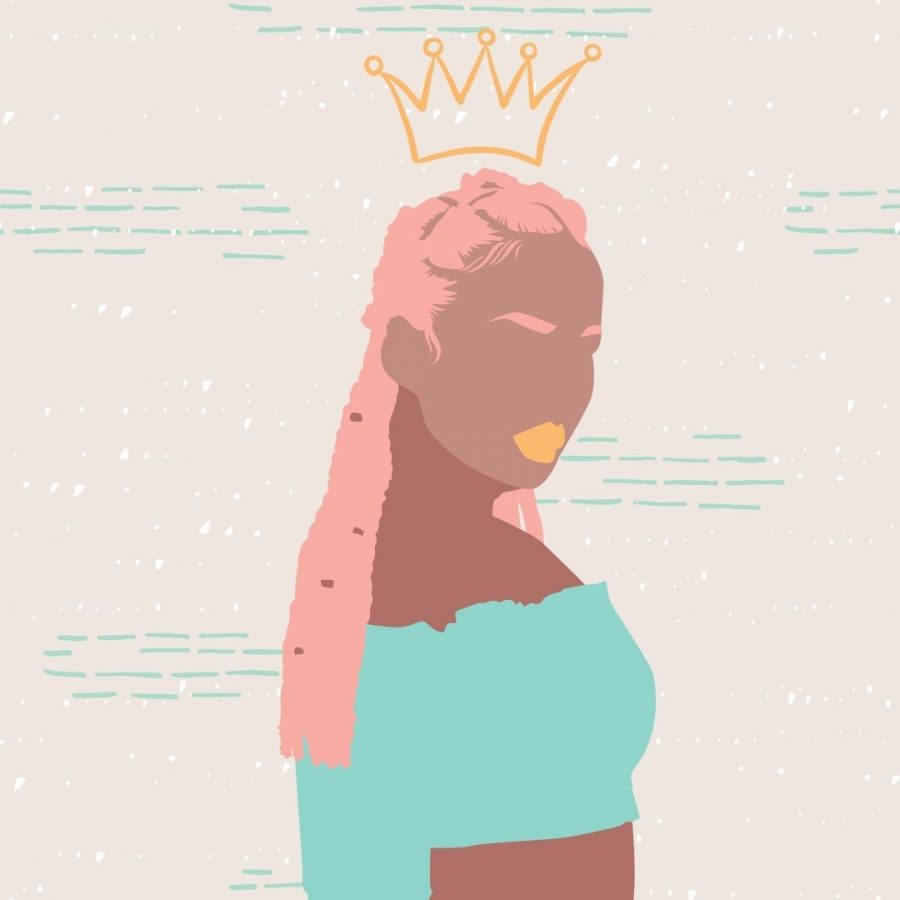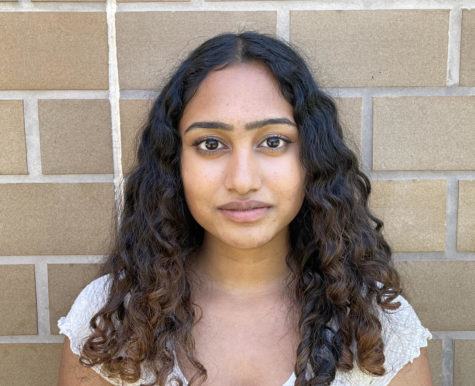The CROWN Act grapples the struggle of natural hair discrimination amongst African- American women in schools and workplaces
The CROWN act has sparked discussion on hair discrimination against African American women.
December 8, 2020
“A hairstyle, for some, is merely a liking, a predilection, a fondness, or even a whim. But for Black women, it can be wrought with so, so much more than a preference” stated Rosette, a Senior Associate Dean who conducted research on bias against natural hair for Duke University. Every day, many young women face the question of whether to give in to social norms or step outside the box, even if it is something as minuscule as hair. The grim fact is that society can not appreciate the individuality of hair because we have young kids worrying if their hair would get them suspended and women worried about how their hair is going to impact their job position. The fear of individuality between hair types is the real and sad truth that most African-American women face every day.
On September 21, 2020, Senator Holly J. Mitchell introduced the CROWN act, a movement against hair discrimination. The CROWN act which stands for “Create a Respectful and Open World for Natural Hair” is an amazing movement that is helping resolve hair discrimination. The CROWN Act is currently a bill in seven states. These states include New York, New Jersey, Virginia, Colorado, Washington, Maryland, and California. This was a great advancement, but the greatest accomplishment of the CROWN act would be getting passed by the U.S House of Representatives. On September 21, 2020, it passed the U.S House of Representatives which was introduced by Congressman Cedric Richmond. Under Senator Cory Booker, the CROWN act is getting advocated in the U.S. Senate. This amazing timeline of the CROWN act is helping many African-American women help express their natural hair.
“We believe this is just the beginning of the end to hair discrimination. It’s another chink in the armor of racial discrimination in this country and I’m just proud to be part of the movement,” said Senator Holly J. Mitchell in an interview with Midday Edition.
There are many viewpoints on hair discrimination, some that are for it and some against it. Many use the point of professionalism to validate their reason against hair discrimination, and that it looks better when everyone has uniform hairstyles. It is true that having a uniform look for schools and workplaces shows a front and an extent of professionalism, but why do certain people have to change their hair to fit into that stereotype? Why should they change the texture and look of their hair and fit into a look? The problem is that we are normalizing certain kinds of hair, so if having uniform hairstyles was such a big issue, why not have different hairstyles for people with different types of hair? Professionalism is a good point but it is only true to an extent when talking about the risks this can cause African-American women who have to adapt to this issue. In an interview with BBC News, Tameka Amado a woman in Boston shares her experience with hair discrimination as an African-American.
“For centuries our hair has been attacked. It’s uncomfortable to know you have no control of how your hair grows, the only thing you can control is how you wear it and how you protect it, and to not have that freedom is discrimination. It only happens with us.” said Amado.
The deeper reason why this issue is so heartbreaking is not just what is happening in the present but the heartbreaking history behind hair discrimination in the past. In the 1700s in New Orleans and Louisiana, African-American women received a lot of attention from white males due to their hairstyles, which in effect implemented the Tignon laws. This targeted Creole women, forcing them to wear a tignon over their hair to display that they were part of the slave class even if they were free from enslavement. The Tignon laws shifted many people’s stereotypes on African-American hair and most of them were negative. Soon enough straight hair was a sign of middle-class status which can be seen by the mid-1920s due to the popularization of the hair-straightening comb among African-American people. Even though the hair-straightening comb was invented in the 19th century it had a big impact on normalizing textures and opportunities given to African-American women. Many things in the past helped shape hair discrimination and the terrors it hides. Even though there are still many opinions and assumptions of African-American hair, the media and movements like the CROWN act have helped spread more awareness about this topic. Instagram influencer and YouTuber, Chizi Duru speaks on hair discrimination in an interview with Bustle.
“Whenever I see any young girl with this hair type (4C hair), the first thing I say is, ‘Your hair is so beautiful’. We need to condition ourselves to think better of our hair texture.” said Duru.
We can make this a better and more welcoming world for the people that are suffering from hair discrimination on a daily basis. By supporting the CROWN act and movements against hair discrimination we can slowly mold a better future for African-American women and kids.


